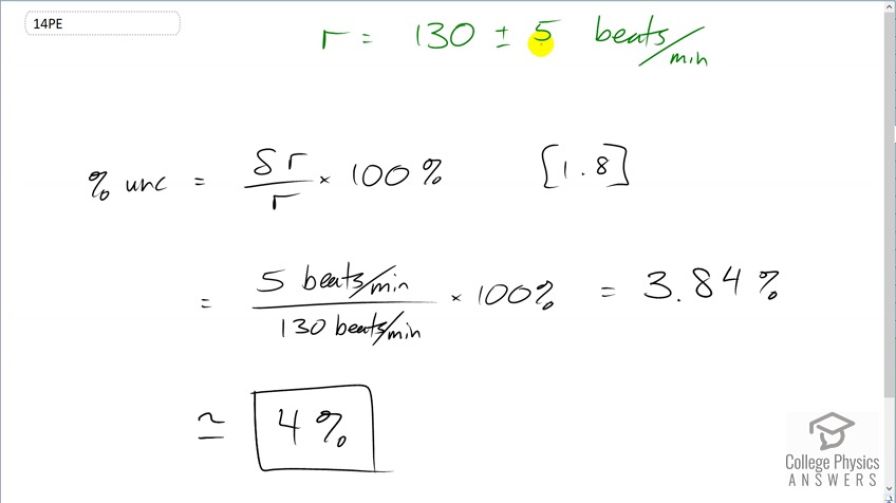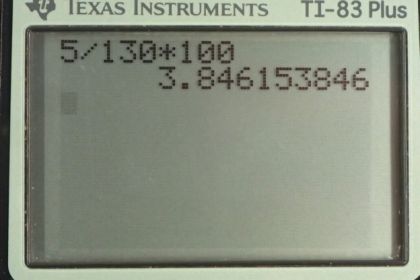Question
An infant's pulse rate is measured to be . What is the percent uncertainty in this measurement?
Final Answer
Solution video
OpenStax College Physics for AP® Courses, Chapter 1, Problem 14 (Problems & Exercises)

vote with a rating of
votes with an average rating of
.
Calculator Screenshots
Video Transcript
This is College Physics Answers with Shaun Dychko. An infant's heart rate is measured to be 130 beats per minute with an uncertainty of plus or minus 5 beats per minute and the question is what is the percent uncertainty in this measurement of a 130? So percent uncertainty from equation 8 in chapter 1 is the amount of error or the absolute error, in other words, which is 5 in this case divided by the measurement itself which is 130 and then we multiply by 100 percent. So we have 5 beats per minute uncertainty, δr divided by 130 beats per minute is the measurement and the units are the same— that's something you have to check all the time when doing these calculations, units on top and bottom have to be the same so that they cancel— and well, you are left with 3.84 percent is the percent uncertainty but because this is an uncertainty, it's an estimate of your uncertainty, you can never be very certain about it and so it's not appropriate to have three significant figures; either two or one is more appropriate and since we had only one significant figure in our absolute error, we'll take one significant figure in our percent uncertainty as well. So four percent is the percent uncertainty.
